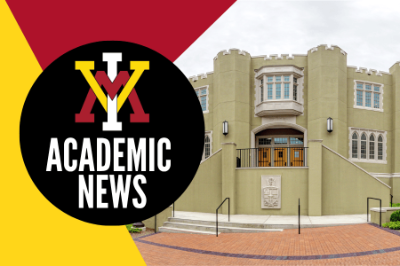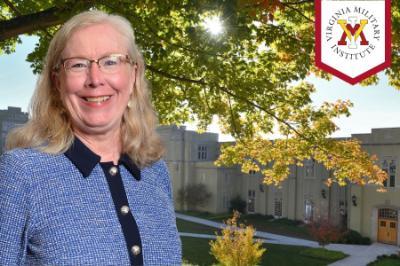English, Rhetoric, and Humanistic Studies
Grounded in a common interest in the varied functions of language, the English major integrates multiple disciplinary approaches, including the literary, the philosophical, and the aesthetic.
Cadets’ command of language is developed both critically and creatively through the study of a range of humanistic works and practice in effective forms of expression.
Rhetoric is both an art and a skill in using language, a means of fostering cooperation among human beings. In this definition “language” encompasses the language of music, art, and philosophy as well as of writing and literature. Through a study of these languages, cadets learn to create and interpret a variety of texts and locate them in their cultural contexts. In the process, English majors discover how authors, artists, and philosophers have shaped and been shaped by the values, beliefs, time, and place in which they lived and worked. Cadets thus gain a cultural awareness that will serve them well in today’s global society.
Given the necessity of digital communication in the twenty-first century, they also learn how to navigate networked writing spaces and to develop multimedia projects for the web. To extend their education beyond the classroom and prepare them to be engaged citizens and professionals, they apply what they have learned to real-world situations in both courses and required fieldwork experiences.
Degrees and Programs
Major(s): English
Degree(s): Bachelor of Arts (B.A.)
Concentration(s)/Minor(s):
- Art History and Visual Culture - Concentration | Minor
- Literary Studies - Concentration | Minor
- Philosophy - Concentration | Minor
- Rhetoric and Writing - Concentration | Minor
English majors take ERHS courses in rhetoric/writing, literature, art, and philosophy and may pursue concentrations in any of these subjects. Emphasizing active learning and individual attention, this major cultivates each cadet’s ability to articulate ideas, analyze information, and communicate clearly with multiple audiences through a variety of media. It also provides them with opportunities to engage in real-world learning opportunities. With twenty-four hours of free electives, English majors may complete minors in other curricula or even double majors. Our graduates pursue careers in the military service, law, business, civil service, marketing, communications, education, and many other fields as well.
ERHS in the News
Find out more about the department's cadets and faculty in recent VMI news.

Article Celebrates 10th year of Revised English Curriculum
The Department of English, Rhetoric, and Humanistic Studies (ERHS) recently celebrated the 10th anniversary of the implementation of a revised English curriculum integrating the study of literature, philosophy, oral and written communication, and fine arts.

VMI English Instructor and Poet Laureate Featured on Podcast
Dr. Mattie Quesenberry Smith, instructor in the Department of English, Rhetoric and Humanistic Studies at Virginia Military Institute and the Commonwealth of Virginia’s poet laureate, is featured on episode 28 of “The Laureate Project,” a podcast launched by Emmy-nominated journalist, Matt Hoisch.
.svg)
.png)